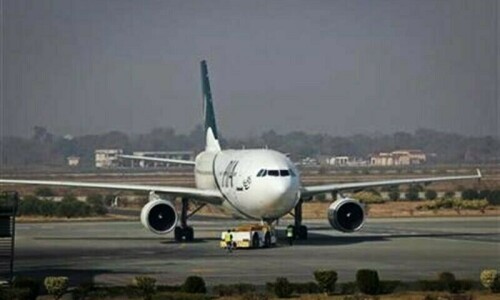ISLAMABAD, Aug 13: The ‘Maritime Labour Convention’ will enter into force on August 20 to regulate conditions for seafarers on more than 75 per cent of the world’s gross tonnage of ships, International Labour Organisation (ILO) has announced.
Pakistan is among the list of countries which have not yet ratified the convention.
Currently, ILO has registered ratifications of the Convention by 45 ILO member States responsible for regulating conditions for seafarers on more than 75pc of the world’s gross tonnage of ships.
The Convention, known as “MLC, 2006” will become effectively binding in international law — it will establish minimum working and living standards for all seafarers on those ships. What’s more, it will also be an essential step toward ensuring fair competition and a level-playing field for quality owners of ships flying the flags of ratifying countries.
It was designed to be applicable globally, easy to understand, readily updatable and uniformly enforced and will become the “fourth pillar” of the international regulatory regime for quality shipping, complementing the key Conventions of the International Maritime Organisation (IMO) dealing with safety and security of ships and protection of the marine environment.
The MLC, 2006 was adopted by government, employer and worker representatives at a special ILO International Labour Conference, in February 2006, to provide international standards for the world’s first genuinely global industry. Widely known as the “seafarers’ bill of rights,” it is unique in its effect on both seafarers and quality ship owners.
The Convention mandates that commercially operated ships of 500 gross tonnage or over and governed by its provisions will, if they operate on international voyages, be required to carry, among other things, two specific documents: a Maritime Labour Certificate (MLC) and a Declaration of Maritime Labour Compliance (DMLC) providing prima facie evidence that the ships are in compliance with the requirements of the Convention.
ILO explained that the MLC, 2006 applies to a wide range of ships operating on international and national or domestic voyages.
Exceptions include those navigating exclusively in inland waters or waters within, closely adjacent to sheltered waters or areas where port regulations apply; those engaged in fishing or similar pursuits; and ships of traditional build such as dhows and junks and warships or naval auxiliaries. It also contains important new compliance and enforcement components based on flag State inspection and for port State control.













































